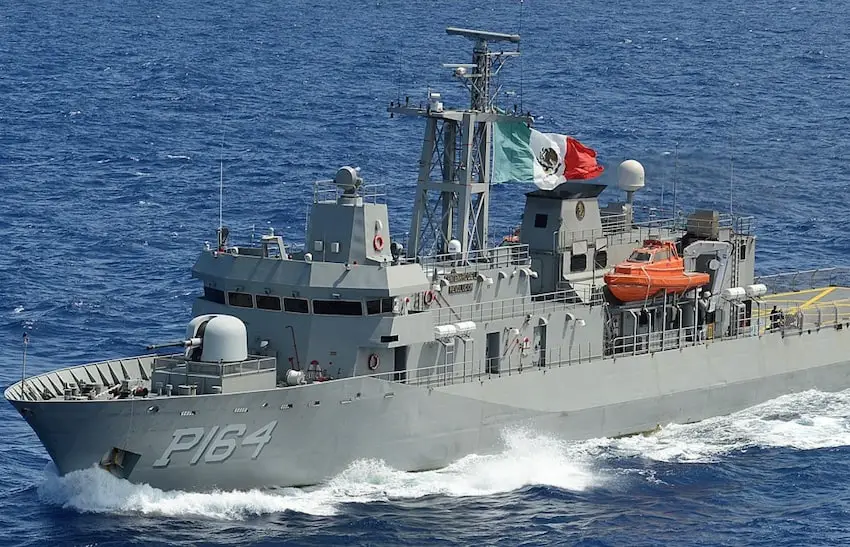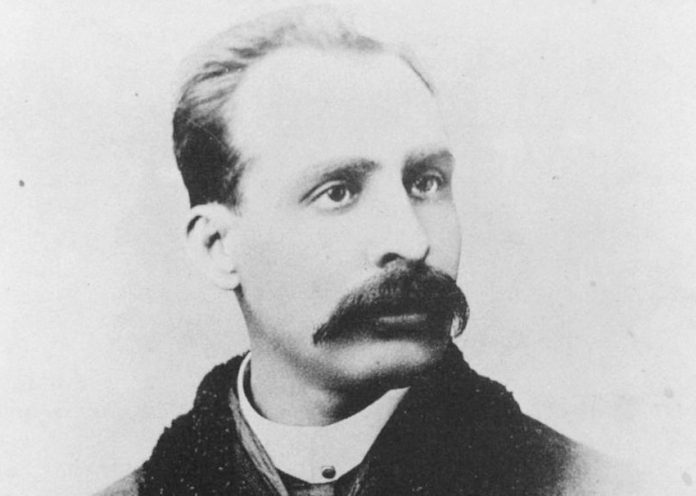A Mexican delegation including 80 military personnel will depart for Panama later this month on a mission whose primary aim is to recover the remains of a revolutionary general who was killed almost 130 years ago.
At the request of President Andrés Manuel López Obrador, the Senate on Wednesday approved a mission to the Bocas del Toro Archipelago, where Catarino Erasmo Garza Rodríguez was killed in 1895 during the Colombian Civil War of that year.

Garza — born in Matamoros, Tamaulipas, in 1859 — was a staunch opponent of Porfirio Díaz, the authoritarian Mexican president who ruled the country for more than 30 years in the late 19th and early 20th centuries.
He is best known for leading the Garza Revolution, or Garza War, an uprising against the Díaz regime that lasted around 18 months between 1891 and 1893.
A summary of a book on the uprising — a precursor to the Mexican Revolution — notes that “on September 15, 1891, Garza, a Mexican journalist and political activist, led a band of Mexican rebels out of South Texas and across the Rio Grande, declaring a revolution against Mexico’s dictator, Porfirio Díaz.”
“Made up of a broad cross-border alliance of ranchers, merchants, peasants, and disgruntled military men, Garza’s revolution was the largest and longest lasting threat to the Díaz regime up to that point,” the summary continues.
“After two years of sporadic fighting, the combined efforts of the U.S. and Mexican armies, Texas Rangers, and local police finally succeeded in crushing the rebellion. Garza went into exile and was killed in Panama in 1895.”
López Obrador also authored his own book on Garza, prior to becoming president.
The mission to bring Garza’s remains to Mexico
“We’re looking for him, … it’s already known how many mass graves there are and where he might be,” López Obrador said in early January.
He said that authorities in Panama had assisted a Mexican team seeking to locate Garza’s remains and declared that it was “very probable” that they would be found.

Garza was an “exceptional revolutionary,” López Obrador added.
A mission to Panama involving military personnel was approved by the Senate in December, but the original plan was changed when it was determined that a military aircraft, a CASA C-295, would be unable to land at the Bocas del Toro “Isla Colón” International Airport.
It was subsequently decided that a naval vessel would instead transport 20 soldiers to the Bocas del Toro Archipelago, located off Panama’s Caribbean coast not far from the border with Costa Rica.
The Senate, in which the ruling Morena party and its allies have a majority, authorized the new plan on Wednesday afternoon. The soldiers will work with officials from the National Search Commission and the Ministry of Foreign Affairs to locate and exhume Garza’s remains.
The naval vessel ARM “Huasteco” AMP-01 will depart the port of Veracruz on Feb. 19 with 60 naval personnel on board in addition to the 20 soldiers — who will be unarmed — and government officials.
The navy personnel will carry out social and community work while in Panama. The vessel is scheduled to return to Veracruz on April 16.
Opposition to the mission
In an address in the Senate prior to the vote that approved the mission, National Action Party (PAN) Senator Kenia López questioned why the government wanted soldiers to leave the country to retrieve the remains of a person who died over a century ago when there are so many missing people in Mexico.

She said that over 49,000 people have disappeared since López Obrador took office in December 2018, and insinuated that the government should focus its efforts on locating them rather than a 19th century revolutionary.
“How do you dare to propose today, to say here that you’re going to look [for remains] in other countries when you’re not even capable of looking for Mexicans,” López said to Morena senators after railing against the federal government for what she charged was a failure to adequately fund the National Search Commission.
Senator Mayuli Martínez, who also represents the PAN, made similar remarks.
“Fifty thousand missing people in Mexico, 50,000 missing men and women in this country! But the president doesn’t want anyone to look for them,” she said.
“… Instead of that, he wants this Senate to authorize the departure of troops to Panama to search for the remains of a general [who died] 130 years ago,” Martínez said.
“And who’s looking for all these people who are disappearing every day? … López Obrador has no shame,” she added before accusing ruling party senators of being “puppets” of the president.
With reports from El Universal, El Financiero and Quadratín
